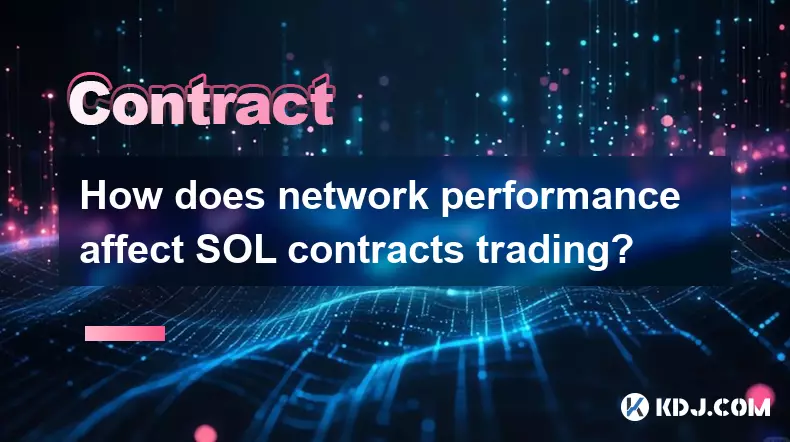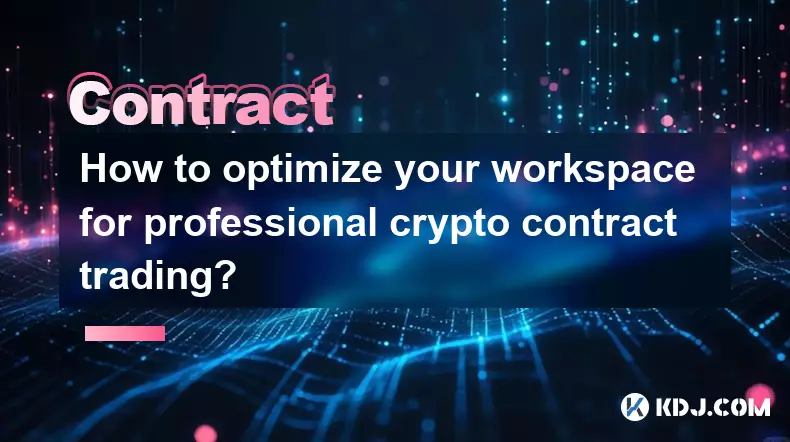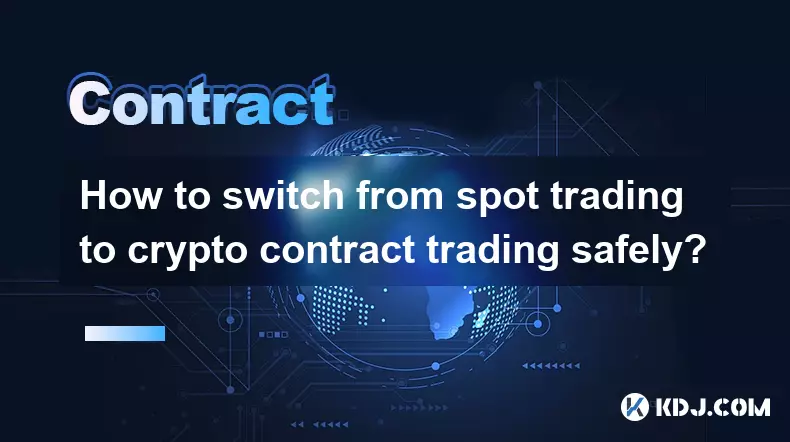-
 bitcoin
bitcoin $87959.907984 USD
1.34% -
 ethereum
ethereum $2920.497338 USD
3.04% -
 tether
tether $0.999775 USD
0.00% -
 xrp
xrp $2.237324 USD
8.12% -
 bnb
bnb $860.243768 USD
0.90% -
 solana
solana $138.089498 USD
5.43% -
 usd-coin
usd-coin $0.999807 USD
0.01% -
 tron
tron $0.272801 USD
-1.53% -
 dogecoin
dogecoin $0.150904 USD
2.96% -
 cardano
cardano $0.421635 USD
1.97% -
 hyperliquid
hyperliquid $32.152445 USD
2.23% -
 bitcoin-cash
bitcoin-cash $533.301069 USD
-1.94% -
 chainlink
chainlink $12.953417 USD
2.68% -
 unus-sed-leo
unus-sed-leo $9.535951 USD
0.73% -
 zcash
zcash $521.483386 USD
-2.87%
How does network performance affect SOL contracts trading?
High network latency on Solana can delay contract execution, increasing slippage, enabling front-running, and undermining time-sensitive trading strategies.
Oct 09, 2025 at 10:54 am

Impact of Network Latency on SOL Contract Execution
1. High network latency can delay transaction confirmations, directly affecting the timing of contract execution on the Solana blockchain. Traders relying on fast-moving price actions may find their orders processed too late to capture intended entry or exit points.
2. When network performance degrades due to congestion or node instability, transactions might fail or be dropped before confirmation. This forces traders to resubmit orders, increasing gas costs and potentially triggering unintended slippage in volatile markets.
3. Arbitrage opportunities on decentralized exchanges built on Solana often last only milliseconds. Poor network response times reduce the ability of bots and high-frequency traders to exploit these short-lived imbalances across liquidity pools.
4. Validators play a crucial role in processing smart contracts. If a significant number of validators experience connectivity issues, block production slows down, leading to inconsistent finality and higher risk for leveraged positions.
5. Delays in propagating transaction data across the network increase the likelihood of front-running by malicious actors who detect pending trades and act ahead of them.
Transaction Throughput and Its Influence on Contract Trading
1. Solana’s architecture supports high throughput under optimal conditions, enabling thousands of transactions per second. This scalability allows complex contract interactions, including multi-step swaps and limit orders, to execute rapidly when the network is stable.
2. During peak usage, such as NFT mints or major market volatility, throughput capacity can be strained. This results in prioritization of high-fee transactions, leaving lower-cost contract calls stuck in mempools for extended durations.
3. Smart contracts involving time-sensitive logic—like expiration of options or liquidation triggers—may not function as designed if transaction inclusion is delayed beyond expected windows.
4. Degraded throughput undermines the reliability of on-chain oracles that feed price data into derivative contracts, potentially causing incorrect valuations and unfair liquidations.
5. Frequent retries due to low throughput increase operational overhead for trading bots, requiring sophisticated fee adjustment strategies and fallback mechanisms to maintain uptime.
Node Reliability and Consensus Stability in Contract Operations
1. The health of Solana’s validator set directly impacts how consistently smart contracts are executed. Unreliable nodes contribute to skipped slots, which disrupt the expected cadence of block production and delay contract state updates.
2. In cases where consensus forks temporarily occur, previously confirmed contract interactions may be rolled back, creating uncertainty about whether a trade was truly settled or needs to be reprocessed.
3. Decentralized finance protocols depending on precise sequencing—such as flash loans or auction-based liquidations—can malfunction if events are reordered or omitted during network hiccups.
4. Traders interacting with perp (perpetual) futures contracts on Solana-based platforms face increased counterparty risk when settlement batches are delayed due to unstable node participation.
5. Monitoring tools used by traders must account for potential discrepancies between local mempool views and global consensus, especially after periods of network stress that affect data consistency.
Frequent Fee Fluctuations Due to Network Demand
1. Solana uses a dynamic fee market where costs adjust based on recent congestion levels. Sudden spikes in activity cause micro-lamport fees to rise sharply, impacting the cost-efficiency of executing multiple contract interactions.
2. Automated trading systems must constantly evaluate fee thresholds before submitting transactions. Failure to adapt quickly can result in either excessive spending or repeated submission failures.
3. Some decentralized applications implement fee abstraction layers, but these add complexity and may introduce new failure modes during periods of extreme network load.
4. High-frequency traders may avoid certain contract functions altogether during known congestion windows, reducing overall market depth and increasing bid-ask spreads.
5. Wallets and interfaces that do not accurately estimate required fees contribute to user errors, leading to rejected contract calls and missed trading opportunities.
Common Questions
What causes Solana network slowdowns during high-volume trading?Network slowdowns often stem from sudden surges in transaction volume exceeding the current capacity of active validators. This includes spam attacks, large-scale bot operations, or cascading failures in node infrastructure during critical market events.
How do traders mitigate risks from failed contract executions on Solana?Traders use transaction simulation tools before broadcasting, set adaptive fee strategies, and rely on private RPC endpoints for faster propagation. Some employ redundancy by routing through multiple networks or using layer-2 solutions where available.
Can oracle delays affect Solana-based derivatives contracts?Yes, delayed oracle updates caused by network bottlenecks can lead to outdated price feeds. This impacts margin calculations, trigger conditions for stop-losses, and fair valuation of synthetic assets within DeFi protocols.
Are there alternatives to public RPCs for more reliable contract interaction?Private RPC providers and dedicated validator instances offer improved uptime and lower latency. These services are commonly used by institutional traders and algorithmic funds to ensure consistent access to the blockchain during congestion.
Disclaimer:info@kdj.com
The information provided is not trading advice. kdj.com does not assume any responsibility for any investments made based on the information provided in this article. Cryptocurrencies are highly volatile and it is highly recommended that you invest with caution after thorough research!
If you believe that the content used on this website infringes your copyright, please contact us immediately (info@kdj.com) and we will delete it promptly.
- Bitcoin Faces Identity Crisis as Speculators Flock to Prediction Markets and Ultra-Short Options
- 2026-02-02 00:30:06
- MGK and Jelly Roll Honor Ozzy Osbourne at Pre-Grammy Gala, Sparking Fan Frenzy
- 2026-02-02 00:50:02
- Super Bowl Coin Flip: Unpacking the Prediction Power of Heads or Tails
- 2026-02-02 01:30:01
- Litecoin Price Cracks 9-Year Floor Amidst Market Breakdown: What's Next for the OG Crypto?
- 2026-02-02 01:20:02
- Crypto News, Cryptocurrency Markets, Latest Updates: A Topsy-Turvy Start to 2026
- 2026-02-02 01:15:01
- New York Minute: LivLive Presale Ignites, While Solana Navigates Choppy Waters
- 2026-02-02 01:15:01
Related knowledge

How to close a crypto contract position manually or automatically?
Feb 01,2026 at 11:19pm
Manual Position Closure Process1. Log into the trading platform where the contract is active and navigate to the 'Positions' or 'Open Orders' tab. 2. ...

How to understand the impact of Bitcoin ETFs on crypto contracts?
Feb 01,2026 at 04:19pm
Bitcoin ETFs and Market Liquidity1. Bitcoin ETFs introduce institutional capital directly into the spot market, increasing order book depth and reduci...

How to trade DeFi contracts during the current liquidity surge?
Feb 01,2026 at 07:00am
Understanding Liquidity Dynamics in DeFi Protocols1. Liquidity surges in DeFi are often triggered by coordinated capital inflows from yield farming in...

How to trade micro-cap crypto contracts with high growth potential?
Feb 01,2026 at 02:20pm
Understanding Micro-Cap Crypto Contracts1. Micro-cap crypto contracts refer to derivative instruments tied to tokens with market capitalizations under...

How to optimize your workspace for professional crypto contract trading?
Feb 01,2026 at 08:20pm
Hardware Infrastructure Requirements1. High-frequency crypto contract trading demands ultra-low latency execution. A dedicated workstation with a mini...

How to switch from spot trading to crypto contract trading safely?
Feb 01,2026 at 03:59pm
Understanding the Core Differences Between Spot and Contract Trading1. Spot trading involves the immediate exchange of cryptocurrencies for fiat or ot...

How to close a crypto contract position manually or automatically?
Feb 01,2026 at 11:19pm
Manual Position Closure Process1. Log into the trading platform where the contract is active and navigate to the 'Positions' or 'Open Orders' tab. 2. ...

How to understand the impact of Bitcoin ETFs on crypto contracts?
Feb 01,2026 at 04:19pm
Bitcoin ETFs and Market Liquidity1. Bitcoin ETFs introduce institutional capital directly into the spot market, increasing order book depth and reduci...

How to trade DeFi contracts during the current liquidity surge?
Feb 01,2026 at 07:00am
Understanding Liquidity Dynamics in DeFi Protocols1. Liquidity surges in DeFi are often triggered by coordinated capital inflows from yield farming in...

How to trade micro-cap crypto contracts with high growth potential?
Feb 01,2026 at 02:20pm
Understanding Micro-Cap Crypto Contracts1. Micro-cap crypto contracts refer to derivative instruments tied to tokens with market capitalizations under...

How to optimize your workspace for professional crypto contract trading?
Feb 01,2026 at 08:20pm
Hardware Infrastructure Requirements1. High-frequency crypto contract trading demands ultra-low latency execution. A dedicated workstation with a mini...

How to switch from spot trading to crypto contract trading safely?
Feb 01,2026 at 03:59pm
Understanding the Core Differences Between Spot and Contract Trading1. Spot trading involves the immediate exchange of cryptocurrencies for fiat or ot...
See all articles










































































